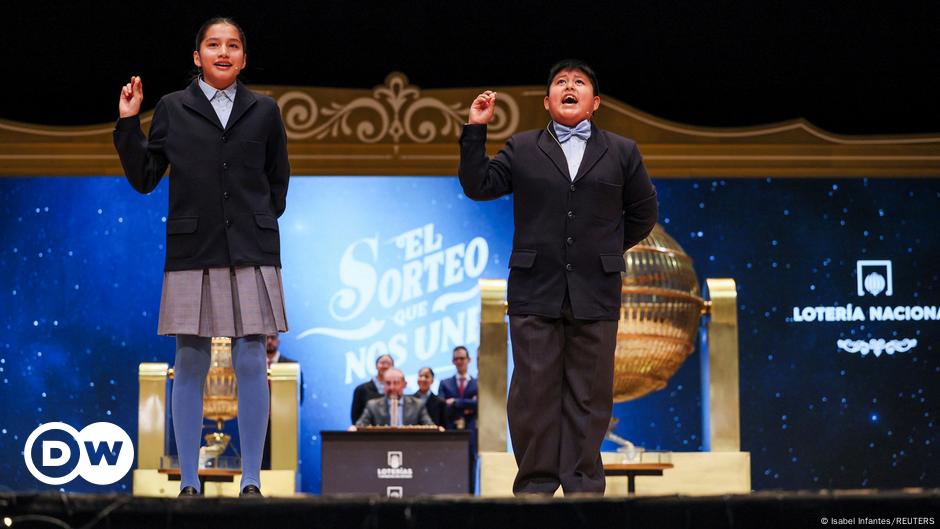Jobs
Graduating international students seeking work in the US face complicated job search – The World from PRX

At the University of St. Thomas in St. Paul, Minnesota, senior Sai Kallur rushes to his morning class with an extra sense of urgency in his step. It’s the first week of his last semester, but he’s thinking far beyond college graduation.
“It’s something that’s always in the back of an international student’s head,” Kallur said. “I’m applying to a lot of jobs, trying to find whatever I can.”
Kallur is an international student from Pune, India, earning a double major in film and digital media and a double minor in business administration and strategic communication. His plan since childhood was to study in the US, as his parents once lived in the US as well.
Like many international students, Kallur wants to gain career experience stateside.
His dream as a budding photographer is to pursue commercial photography for advertising agencies, but Kallur knows the process will be complex. His biggest challenge lies in transitioning from his F-1 student visa to an H-1B visa, which would allow him to work for a US company. He sees many companies hesitant to navigate the legal requirements and costs associated with sponsoring an international worker.
“It’s hard to find that because a lot of companies aren’t aware of the legal system or don’t have the legal infrastructure,” Kallur said.
Lori Friedman, director of the International Students and Scholars program at the University of St. Thomas, oversees over 500 international students on campus. Much of her job is spent not only making sure students understand the high stakes of seeking employment in the US, but educating employers as well.
“It’s very difficult,” Friedman said. “Many students want US work experience before returning home, but employers have a learning curve when it comes to hiring international graduates.”
Science, technology, engineering and mathematics majors have an advantage. The US allows STEM students to work under an Optional Practical Training visa for up to three years after graduation.
In contrast, non-STEM majors like Kallur have only one year to find a sponsoring employer.

“Finding jobs in Minnesota is hard enough because not a lot of companies sponsor visas in this industry,” Kallur said. “So, I have to apply to bigger markets like New York, Chicago and LA.”
Kallur is not alone in his struggle.
Recent University of St. Thomas graduate Lucky Phan, from Da Nang, Vietnam, applied to more than 600 jobs over two years before landing a full-time position in supply chain management at a major manufacturer outside St. Paul.
Despite graduating with honors and holding many leadership roles on campus, even receiving a prestigious student of the year award, she found that being at the top of her class did not guarantee employment.
“It was like trying to catch fish with your bare hands; they slip through all the time. I applied for over 600 jobs, and only 15 companies even reached out to me.”
Lucky Phan, recent University of St. Thomas graduate from Da Nang, Vietnam

“It was like trying to catch fish with your bare hands; they slip through all the time,” she said. “I applied for over 600 jobs, and only 15 companies even reached out to me.”
Lucky Phan began her new job just two months ago, and says she was highly motivated to stay in the US to be near her younger sister, Happy Phan, also a student at the University of St. Thomas, following in her sister’s footsteps from Vietnam to Minnesota.
“I thought I had lost hope and wouldn’t get anything,” Happy Phan said. “But I never gave up, and it worked out.”

Mark Sorenson-Wagner, director of career development at the University of St. Thomas, teaches international students about the factors they can control in the job interview process, from making connections to feeling confident when an opportunity arises so employers will recognize their value.
“How do we make sure that you are ready to go in terms of your networking skills, your elevator pitch, you have a great resume, you’ve practiced your interview questions? You present yourself as the strong candidate that you are to break down as many barriers as possible if a company is on the fence in terms of making things work,” Sorenson-Wagner said.
For students like Kallur, the clock is ticking. He remains optimistic about his future, and for now, rushes to class without trying to dwell on a job search mired in increasing uncertainty.
“I’m lucky enough to be in a position where, even if it doesn’t work out, I can still go home,” Kallur said. “The world isn’t falling down for me — at least not yet.”










